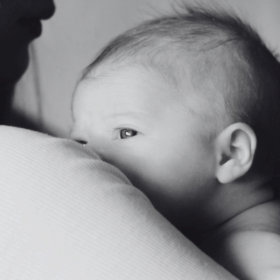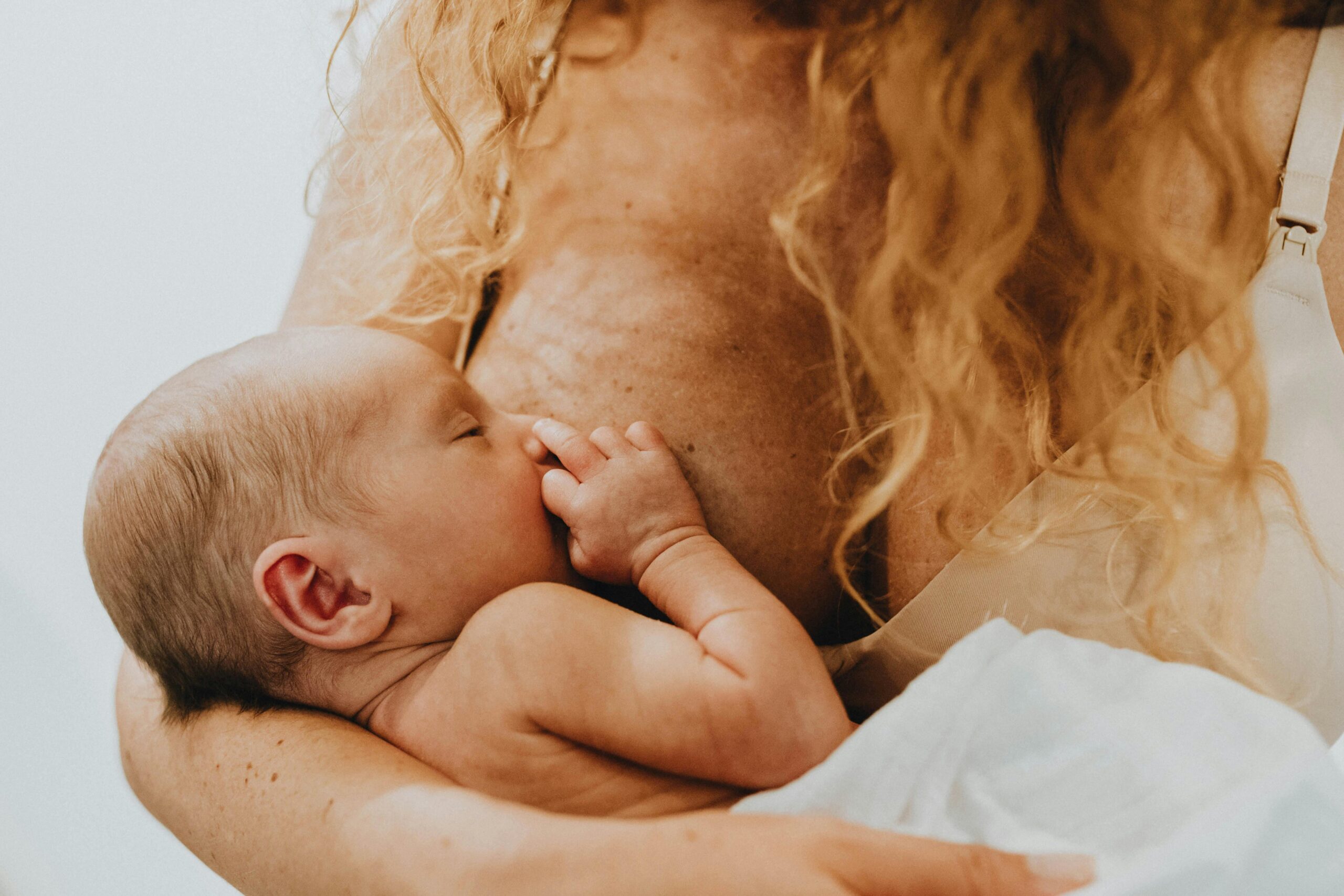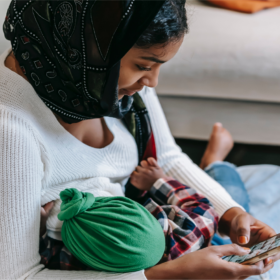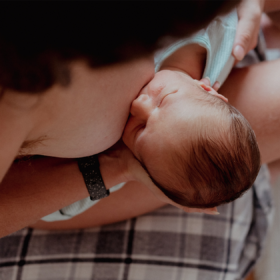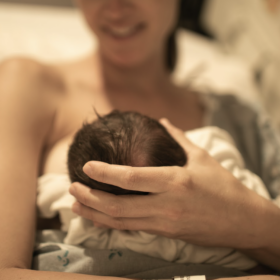
Why is breastfeeding important?
In this article
What's the lowdown?
Breastfeeding is a HARD skill but with the right support can be a beautiful bonding experience. Making an informed choice is important.
Learning to breastfeed takes lots of practice. Progress may NOT be linear so expect set-backs. Notice (and celebrate) improvements over time (1).
Breast milk has all the nutrients your baby needs to grow & develop and antibodies to fight infection.
Breastfeeding has been proven to reduce the risk of SIDS (cot death) by 50% after exclusively breastfeeding for at least 2 months.
Breastfeeding is good for a mother’s health; reducing the risk of some cancers and post-partum depression.
Breast milk is AMAZING. It is specifically tailor made for baby; providing them with all the nutrition they need to grow and develop.
It has carbohydrates, fats, proteins and vitamins all of which are easier to digest than formula. It changes day to day, according to what the baby needs. For example, studies show breast milk has higher amounts of protein in babies born early (preterm before 37 weeks) compared to term infants (born after 37 weeks)2.
Breastfeeding and the immune system
Breast milk also contains some proteins called antibodies. They are made by our immune system to fight off infection. Babies have an immune system that is still developing. But, when you breastfeed, you share your antibodies with the baby.
When you touch or kiss your baby, you come into contact with bugs on their skin. Your body then makes more antibodies. The next time your baby feeds, there will be antibodies against THAT bug in your milk – incredible right?
They may still get the bug, but, it will usually last a shorter period of time or be less serious3.
Breastfeeding has been shown to reduce the chance of your baby getting ear infections, coughs and colds, diarrhoea & vomiting and even allergies.
It can also reduce the chance of more serious things later in life like type 2 diabetes, asthma and even some childhood cancers4.
Why does breastfeeding reduce SIDS?
SIDS stands for sudden infant death syndrome, but most people call it cot death. Studies have shown that breastfeeding reduces the risk of SIDS. After exclusively breastfeeding from birth for at least 2 months, it reduces the risk by 50%.
The reason behind this is because babies wake up more easily when they breastfeed. When babies don’t go into as deep a sleep, they are less likely to stop breathing, which is often what happens with SIDS5.
What about for mum?
Breastfeeding helps the uterus contract down to a normal size. Breastfeeding uterine contractions can be painful but also reduce the chances of heavy bleeding after your baby is born.
It is a lovely way to be close to your baby regularly. It will deepen the mother-baby bond. Hormones play a part in this too. Prolactin and oxytocin are released when breastfeeding and can drop your blood pressure, which will give mothers a sense of well-being and relaxation.
Breastfeeding has been shown to reduce the risk of breast, uterine, cervical and ovarian cancer. It also reduces the risk of diabetes and heart disease6.
It can reduce the chance of osteoporosis and hip fractures when women head into the menopause.
Breastfeeding is complex and can cause a lot of stress and upset when it’s not going well. However, research shows that overall there are lower rates of depression in breastfeeding mothers. Breastfeeding can ‘switch off’ the stress response; a combination of fight or flight, a stress hormone called cortisol and inflammation.
Breastfeeding mothers can still get depression, but their risk will be lower and their coping mechanisms may be better7. Studies have proven breastfeeding mothers have longer and better quality sleep which also plays a part8 in your mood and mental health.
Can breastfeeding make you lose weight?
It is important to rest and recover after the birth of your baby. So forget about the scales and focus on looking after yourself. Waiting at least 6-8 weeks after delivery even before you think about weight loss to establish a good milk supply.
Expect to need to eat more than normal to keep up with your baby’s needs. Breastfeeding burns roughly 500-700 extra calories per day. This doesn’t always mean instant weight loss because of things like reduced physical activity and changes in diet.
Overall, breastfeeding mothers do see weight loss of on average 1-2 pounds per month. Which seems to be more than women who choose to formula feed9.
Breastfeeding as a contraceptive method
If you exclusively breastfeed, you probably won’t see a period for the first 3-6 months. This is called lactational amenorrhoea or LAM.
LAM is an effective contraceptive method WHEN FOLLOWED CORRECTLY. It can be up to 98% effective at preventing pregnancy.
You MUST make sure you are:
1. Feeding at least every 4 hours in the day and 6 hours in the night
2. Having no periods – which is defined as a bleed for 2 or more days, two months after the baby is born.
3. Your baby is less than 6 months10.
The benefits of extended breastfeeding
The benefits of breastfeeding continue for as long as you choose to breastfeed. The World Health Organisation recommend exclusively breastfeeding for the first 6 months. They then advise adding in food and breastfeeding to continue for two years or more.
Studies show that a child’s immunity doesn’t mature until 2-6 years. So, more breastmilk equals more immunity boosting11. Connection and comfort for both mother and baby continues.
Breastfeeding as a choice
We want all mothers to feel like they can make an informed choice. Breastfeeding can be a difficult skill to master and we fully support women who choose not to breastfeed, find it too difficult, combi feed or switch to formula after a short time of breastfeeding. Whatever you choose, remember that you’re amazing and your baby loves you.
If you are struggling and would like to continue to breastfeed, there are some great supportive resources to use:
2. National Breastfeeding Helpline 0300 100 0212
3. Find a local IBCLC (International Board Certified Lactation Consultant)
Our medical review process
This article has been medically reviewed for factual and up to date information by a Lowdown doctor.


